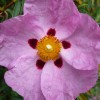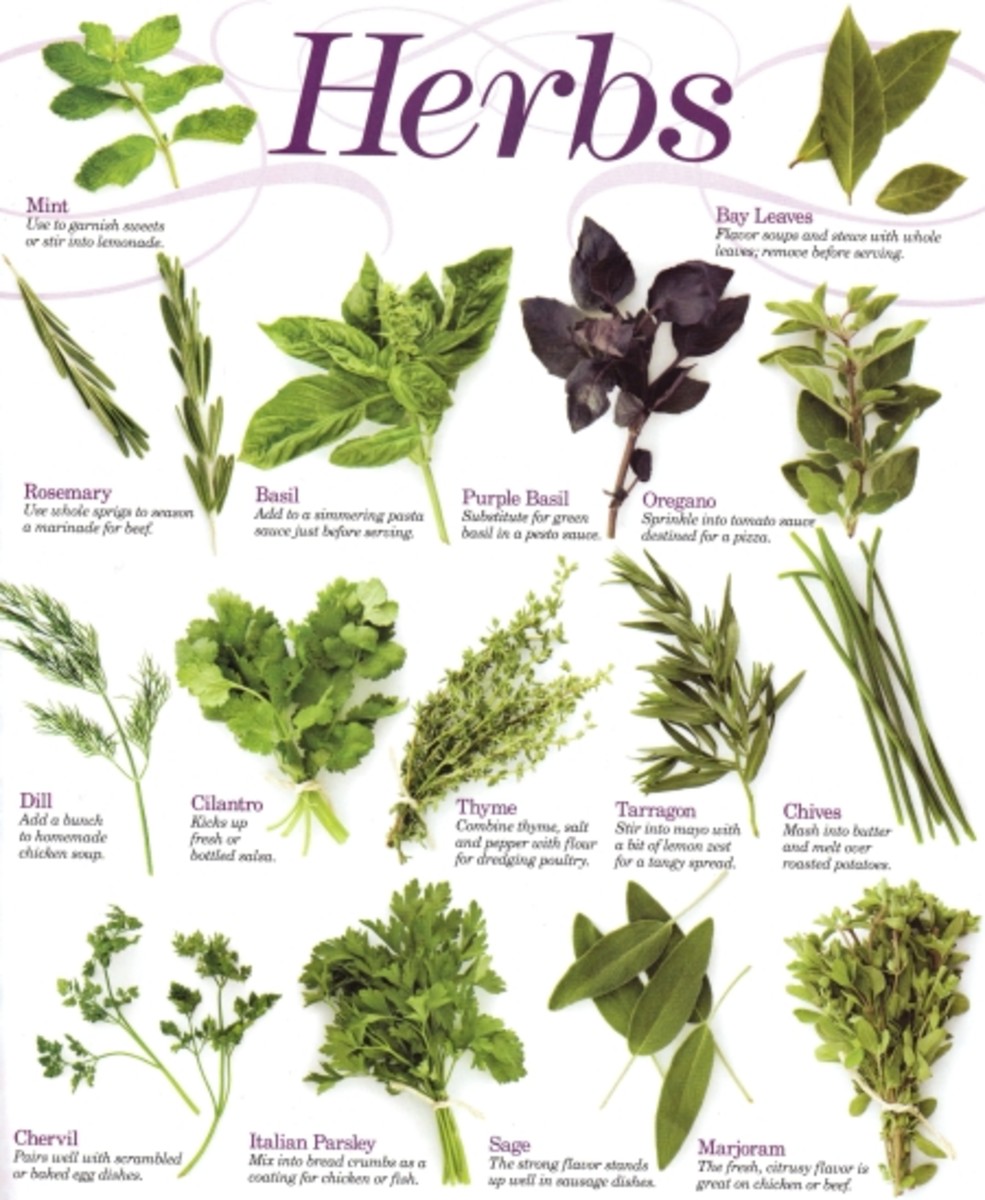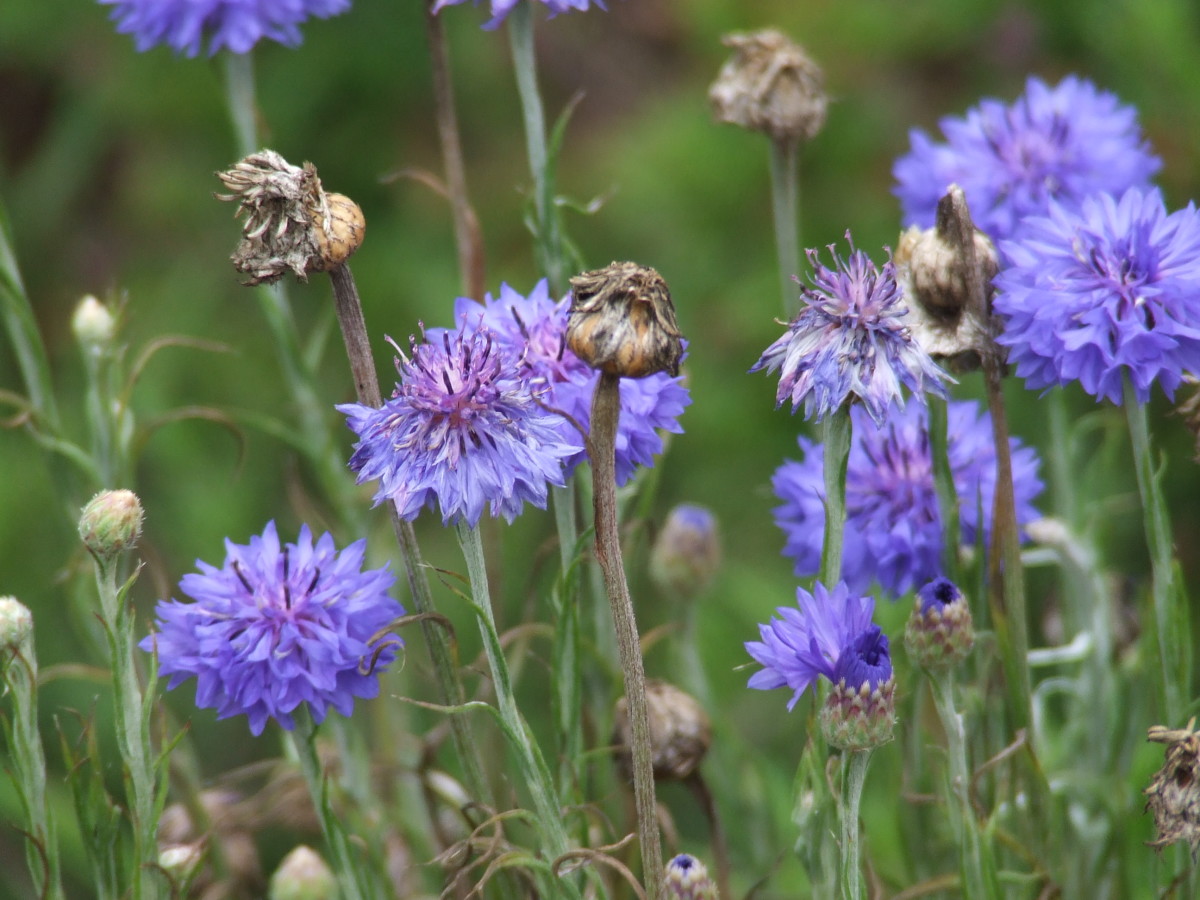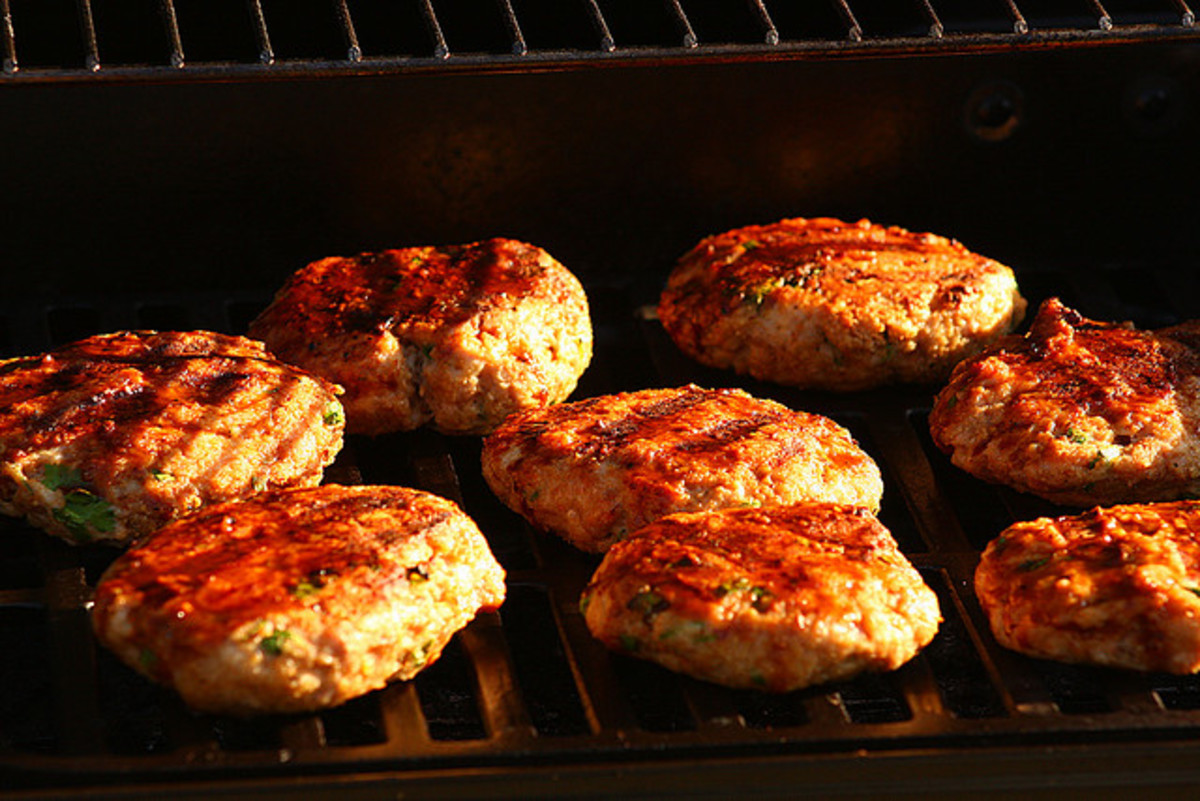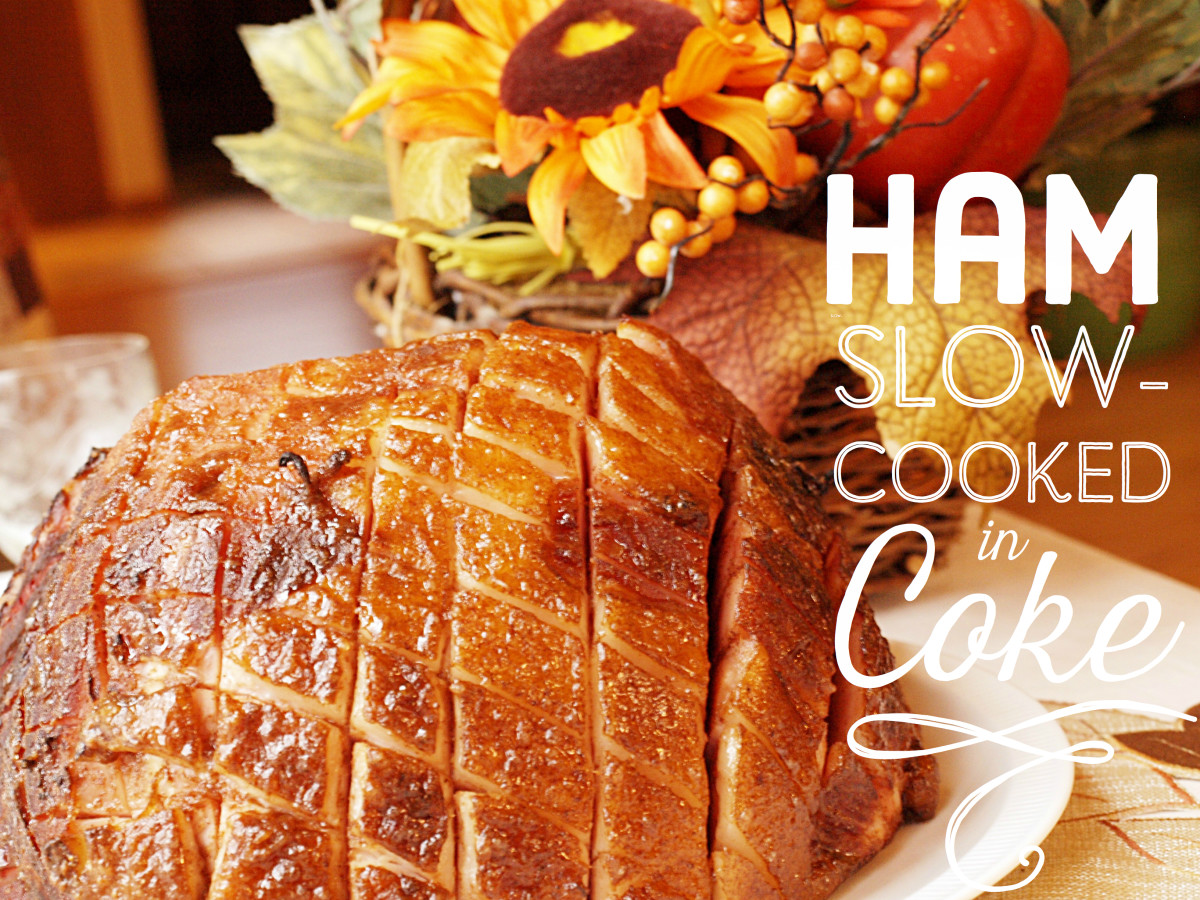Provencal Herbs - Their Culinary and Curative Uses
One of the nicest things about living in the south of France is the abundance of fresh herbs all around: sprigs of parsley and basil are regularly given away with vegetables from the market, thyme grows wild, and rosemary and lavender are regularly used as border plants or hedges.
Below are some of the most popular ‘Herbes de Provence’ and some of their culinary uses – I’ve also added a few ideas for natural remedies when infused in boiling water, though I must admit that I’ve never tried any of these so am unable to vouch for their effectiveness, and even less so for the taste!
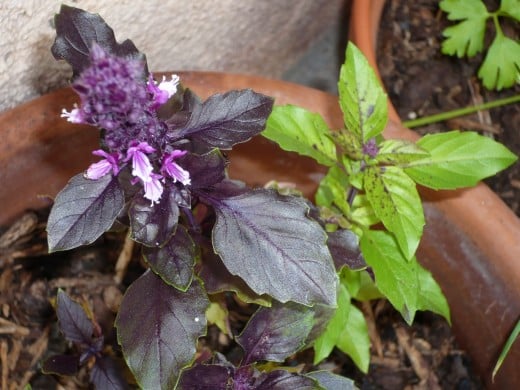
Basil
Possibly the best-loved and most frequently used herb in Provencal and Mediterranean cooking, basil, when combined with garlic and olive oil, is crucial for the famous ‘pistou soup ’, and is otherwise a perfect addition to salads, tomatoes and pasta sauces. Added towards the end of cooking, it lends its delicate flavour to ratatouille , and is out of this world when added to lamb simmered in cream and garlic.
When infused in boiling water, dried basil is said to help digestive problems, flatulence and slight constipation. Fresh leaves crumpled up are said to sooth insect bites and stings.
- Quintessentially Provence?
I was commissioned to write this a few years ago for a new magazine that was launching on the Riviera. Unfortunately, the owners ran out of money and fled the country, without paying anyone. I wont name... - Rural French Life: The Brocante
Twice a year, every year, my little village in the south of France holds a brocante, less romantically known in English as a car boot sale. For the sellers, its a chance to clear out the...
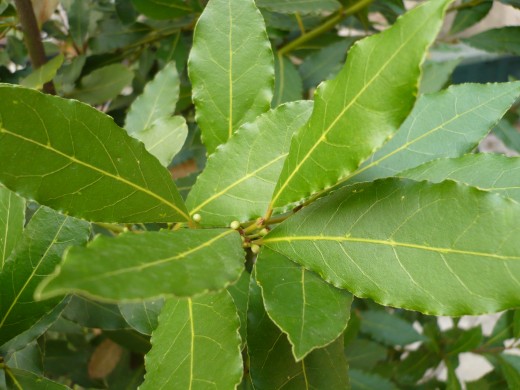
Bay
Bay leaves are well-known in ‘bouquet garnis ’, a staple of French cuisine, but I find their subtle flavours are also magnificent with cooked with chicken pieces (other ingredients: onion, parsley, garlic and white wine) and, my absolute favourite, rice pudding. Yes, really. Just add two bay leaves to your usual rice, milk, cream, sugar and vanilla mix for a delicious, delicate flavour that’ll get your guests guessing!
Young leaves, broken up and infused, are said to ward off colds, flu, coughs, insomnia and period pains.
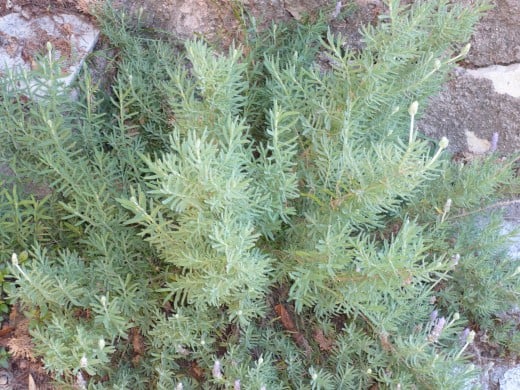
Lavender
Easy to grow, lavender self-seeds all over the place, with young plants springing up in the cracks between paving stones if you let them. Provencal gardeners usually cut it right back in the autumn to ensure a stunning display of flowers in the spring, but I seem to get away with doing the opposite - letting it flourish over the winter for a fabulous dash of colour in the garden, and cutting it back in the summer, so it needs less water. Lavender smells divine, makes for gorgeous table decorations, and may be used in ice-cream and biscuits.
Dried flowers are said to help ward off coughs, bronchitis, flu, flatulence, depression and insomnia.
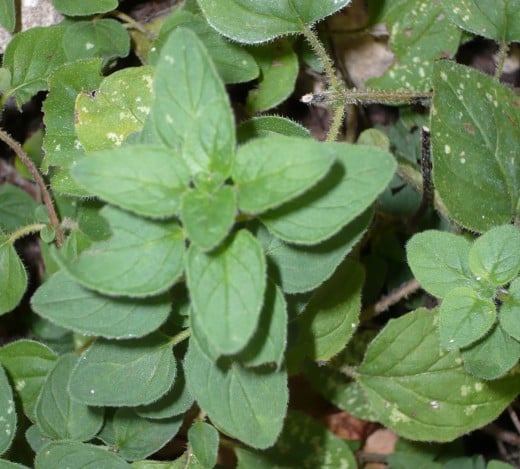
Marjoram
Great with many tomato-based sauces, and especially wonderful with julienned courgettes and carrots fried with chopped onion and some chilli. Also to be added, with basil, to ratatouille in the last few minutes of cooking.
The flower tips are said to help against anxiety, insomnia and even hiccups!
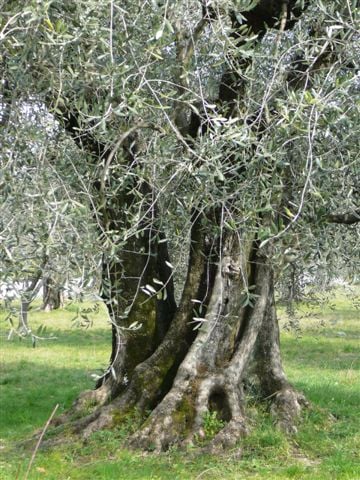
Olive
Not so much of a herb, more a whacking great tree, really, but where would Provencal cooking be without olive oil or olives themselves? The world would surer be a poorer place without such delicacies as Aioli – essentially a garlic mayonnaise, Tapenade – crushed olive paste, and Anchoiade – anchovies crushed and mixed with olive oil.
I’ve read that a spoonful of olive oil before a big night out helps in the fight against drunkenness (but couldn’t possibly comment); an infusion of dried leaves is said to be good against high blood pressure and obesity.
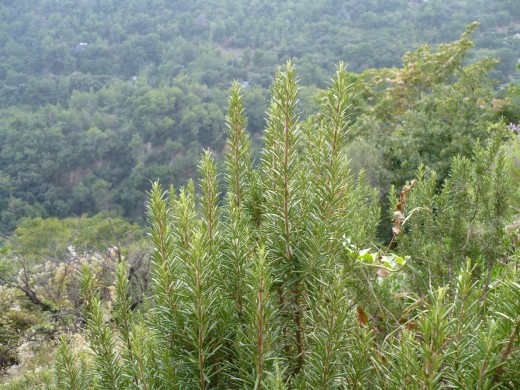
Rosemary
Rosemary is traditionally used with lamb (a roast leg studded with garlic and anchovies is delicious) and great as a marinade for barbecues with olive oil, garlic and lemon. It grows so enthusiastically I wish I had more uses for it…
Dried leaves infused with boiling water are said to be helpful against asthma, bronchitis, coughs, flu and colds. There is also an, ahem, sexual tonic wine: macerate two handfuls of rosemary leaves for 48 hours in a litre of tannin-rich red wine. Filter, drink and – well, your guess is as good as mine…
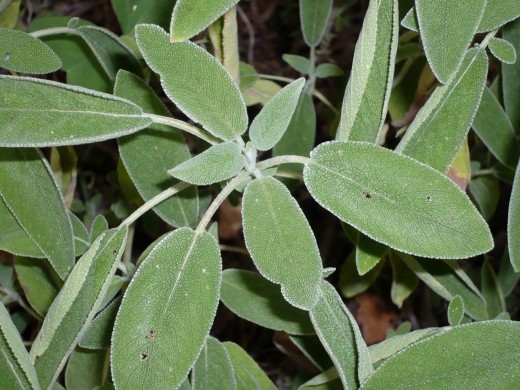
Sage
Sage tends to go with pork, its leaves are delicious when fried with butter and lemon, but it’s also a perfect match for starchy foods such as lentils. Chicken pieces simmered in rosemary, sage, thyme, garlic, lemon and white wine make for an absolutely delicious summer supper.
An infusion of dried leaves is said to be good for fatigue, anxiety and rheumatism.
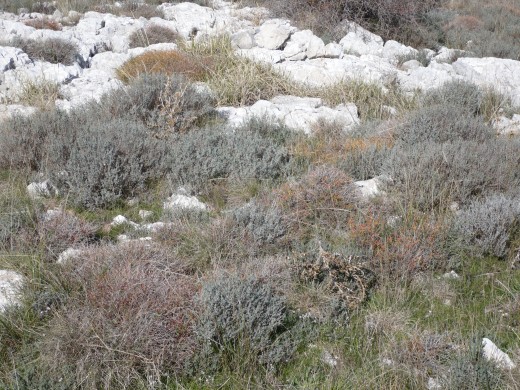
Thyme
The other vital ingredient in ‘bouquet garnis ’ along with bay leaves, thyme is used to flavour all kinds of Provencal dishes, including stews, marinades, fish, pasta and grills. When feeling indulgent, take some boiled potatoes and add them to simmering cream, into which you also put flattened cloves of garlic and some lightly-bruised thyme. Fabulous with roast chicken as a warming, wintry treat.
Dried leaves are said to ward off anxiety, depression and flatulence. Don’t ask me.
